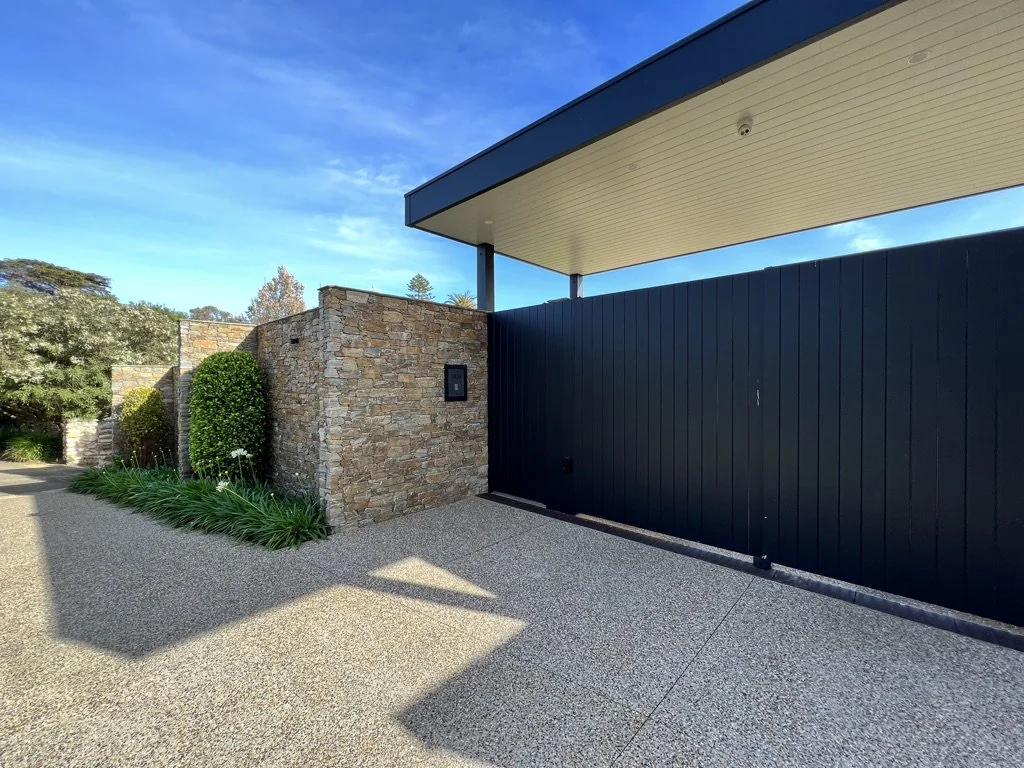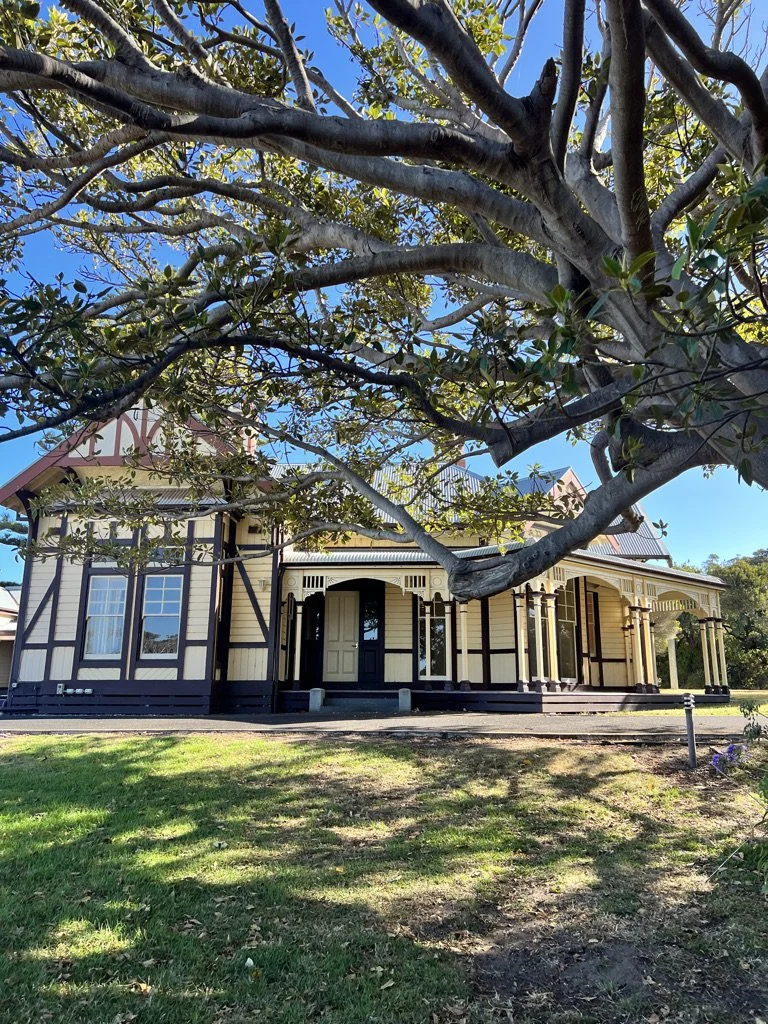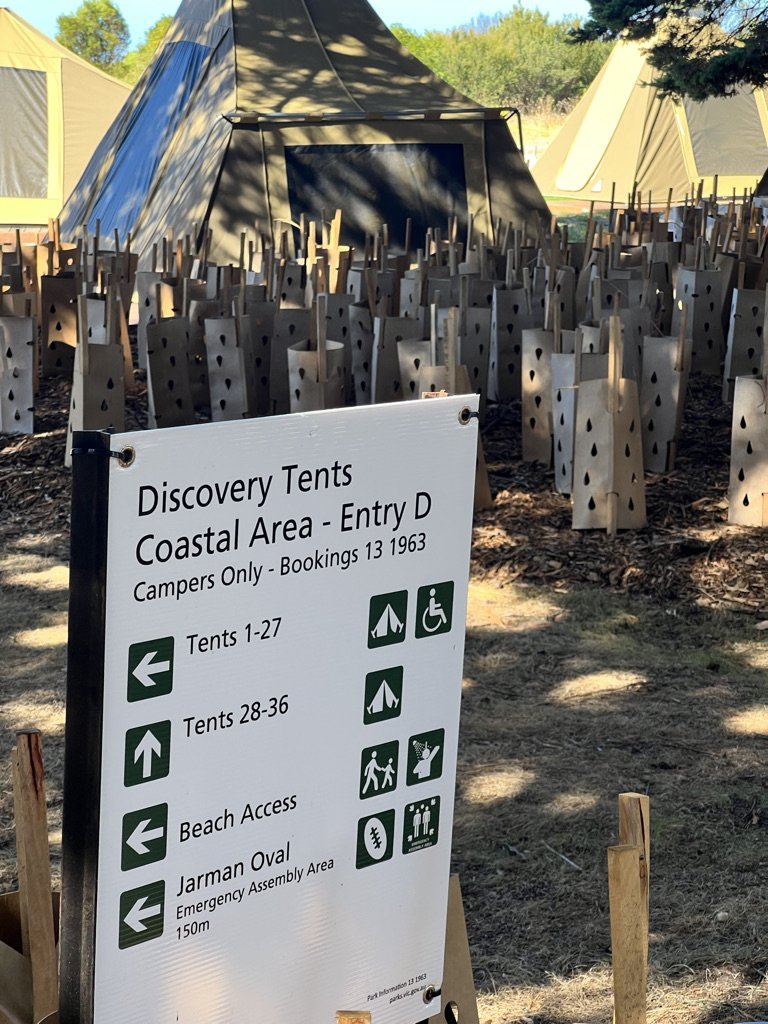[Un]reasonably outraged … about wealth and entitlement
Thanks to the Mornington Peninsula Shire, I recently spent two glorious weeks at a writing residency in a beautiful seaside town. Surrounded by ocean and bushland in my little old cottage with the ghosts (a story for another time), I experienced what living in that area would be like, should I ever earn enough money to purchase a house there (spoiler alert: highly unlikely).
Would you like to be buzzed into the pool house, main house, or garden house?
The mansions in one particular section are out-of-this-world luxurious. The money splashed on these properties feels somewhat grotesque. Stone walls and big iron gates with security to screen visitors. Grass tennis courts, pools overlooking the ocean, manicured lawns—and owners—and high-end cars. And some of these places are just weekend houses! Most of us will never experience a lifestyle like it, but I loved imagining the lives of the people behind these fences.
I wondered what they did to accumulate such wealth. Was it “old money”? Was it made through luck or hard work or maybe a combination of the two? I chatted with locals to learn more about the area and its inhabitants.
In one shop, I browsed through vintage treasures. The cheapest thing I found was a $200 scarf. The shop owner had looked me up and down as I walked in, already assessing I wasn’t one of “them” (I was not wearing white linen pants and there was no matching handbag dog to be seen). Her judgement didn’t deter me because I knew I was judging her snobbiness right back. Or to frame it in nicer terms, I remained curious about this woman and her opinions. To break the ice, I struck up a conversation about the residency I was staying at and once she knew I was a “bona fide writer” (as she called it), she was willing to talk. Clearly, she assumed I was an author who had money to spend. Oh, dahling, how wrong!
I asked her about the Point Nepean National Park: a 560-hectare landscape boasting beaches, cliffs and dunes, as well as incredible heritage buildings from the 1850s with a rich history of early European settlement. The magnificent buildings are, for the most part, empty. Some are set up as museums for visitors who are keen to learn about life in a different time, others are spaces for artists to showcase their talents. A few operate as information and administration offices for Parks Victoria staff, but most remain vacant.
One of the magnificent vacant homesteads
The wretched glamping tents
The shop owner (let’s call her Prue*) told me that suggestions for how to use the buildings had been made for many things over the years: a day spa, a wedding reception venue, and even renovating the buildings so they could become a quarantine facility during Covid. Locals were unhappy about all these ideas, she stated. Not to mention, the “wretched glamping” they’d erected there. This development angered residents of the town because it was ugly. I countered her disapproval and said they’d actually designed it very tastefully, off to the side and surrounded by scrub. The real reason she was unhappy? Those tents invited visitors and that meant tourists populating “our beach”.
Ignite my fury! Nobody owns beaches. Not in Australia, anyway. Land that the high tide touches is considered Crown Land. (That being said, a well-known billionaire is trying his best to legally grab his own piece of beach.)
The coastline of our island nation is within reach of most places and it is where we flock to for a reprieve from the heat and the stresses of everyday life. It is part of our culture, our upbringing. To see and smell the ocean, the freedom to walk along the shore, to swim, to gather with friends, and to explore—these are experiences ingrained in most of us.
Power over land is something white settlers have held over Indigenous Australians for more than two hundred years (Indigenous people have inhabited the Port Phillip region for around 40,000 years). As a middle-aged, middle-class white woman I’m keenly aware of the irony of my rage. However, the elitist entitlement that often comes with wealth needs to be opposed and challenged, irrespective of heritage or bank balance.
This whole protectiveness-over-the-beach issue made me think about who we keep company with. Are our views ever disrupted if we are constantly associating with “like-minded” people? Will we see things from a different perspective when we only look through a single lens?
I had a friend challenge my own thoughts on this, saying perhaps I had an inferiority complex. Ha! I don’t feel inadequate or insecure in this context, but I welcomed her provocation.
If Prue met someone who had never been to a beach and witnessed them enjoy that shoreline for the first time, saw the delight on their face, the thrill of the water cooling their body, would she open her mind to sharing her glorious beach?
I guess I’ll never know.
I left the shop without buying a thing. I really showed her.
KOx
*Prue is not her real name (as far as I know) but I was channelling Kath and Kim when I named her.



